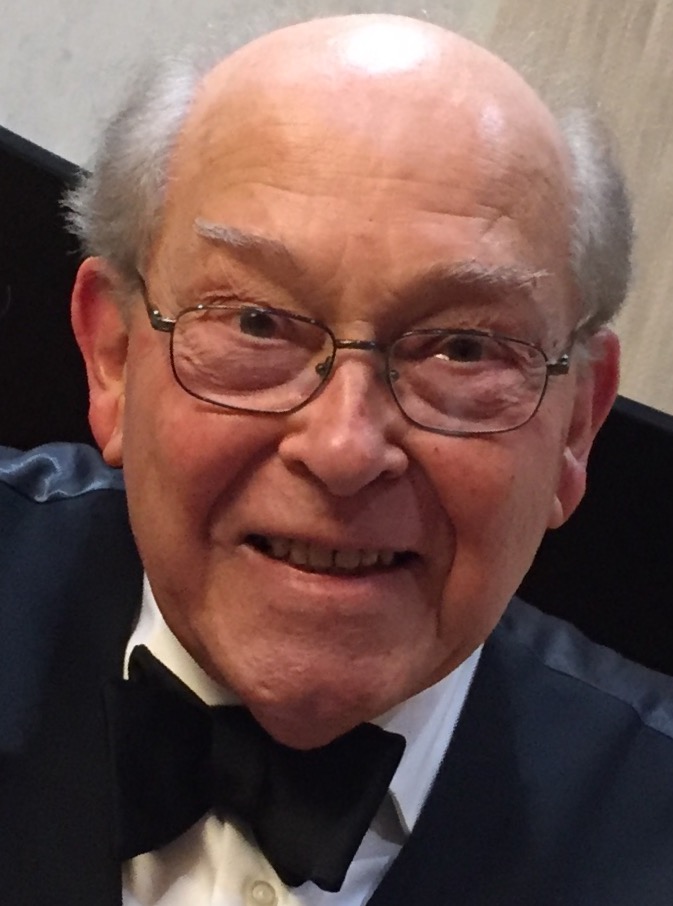
No one can doubt pianist Henry Spinelli’s dedication to his craft—or his community. For more than three decades the now-emeritus professor taught piano to generations of musicians at Chatham University. He’s performed hundreds of concerts, solo recitals, performed with innumerable ensembles including members of the Pittsburgh Symphony Orchestra, and has been an integral part of Pittsburgh’s music scene throughout his tenure.
At 86 years of age, Spinelli has added to that role a new one: philanthropist. Having documented a future bequest to Chatham University, Spinelli is ensuring his legacy continues at Chatham for a long time to come.
Henry Spinelli’s relationship with Chatham stretches back to the 1940s, when he visited the campus as a high school student from nearby Greensburg. You’ve got to go back even further, to before the Second World War, to find the origins of his piano playing. The prodigy began tickling the ivories at the age of 3, and soon was accompanying his mother as she sang popular songs they heard on the wireless. By 18, Spinelli was so certain of his destiny, he turned down a full scholarship elsewhere to attend Carnegie Tech (now Carnegie Mellon University) and study piano.
After college, and an involuntary stint in the Army, Spinelli found his way to Chatham College, where he’d heard of a piano instructor’s job opening up. After a successful two-year trial in that position, Spinelli petitioned the president of the College, Dr. Edward D. Eddy, for an appointment as a full-time faculty member. Spinelli wrote his own contract: “It was much too generous,” he says, “but I was desperate to get the job!” He began teaching in 1961.
Spinelli became a part of the Chatham community by design; he became part of the fabric of Pittsburgh’s music community without even knowing it. He recalls speaking to a colleague one day who asked him, “do you realize that our mission is to change lives?” He hadn’t. But, he says, it only occurred to him that in his duties at the College—lecturing in music and interdisciplinary courses, teaching piano, performing innumerable concerts—he may have achieved just that.
In November, 2018, Spinelli gave the most recent of his half-century of recitals at Chatham. This one was extremely special. Like so many in the Pittsburgh area, Spinelli was profoundly affected by the attack on the Tree of Life synagogue across the street from Chatham’s south entrance. (“So close to our home,” he says). The long-decided program, of Schumann, Brahms, Ives and more, fit Spinelli’s desire to do something meaningful for the community in the wake of that horror.
“Music can fill in the gap when we are so desperate to recover from terrible events,” says Spinelli. “Itzhak Perlman said of that tragedy, ‘If you want to say something profound, you say it simply.’ That’s what those Brahms pieces in my recital did.”
That same idea holds true for Spinelli’s philanthropy. He hopes that his bequest will help reinforce the values of the liberal-arts tradition at Chatham. He believes that well-educated people can make a difference by sharing and giving of themselves. He believes that education is the hope for the future.
“Philanthropy can function at all levels,” says Spinelli. “It’s not a matter of how much you give, it’s just recognizing the responsibility for giving. I received financial aid as a student in dire need, and, as an employee of an educational institution, I understood the need from that perspective, too. I understand the need for giving. Plus, it’s infectious! It feels good to give!”
Spinelli believes that helping students gain a good education also helps the community and—in the long run—just may help change our society.
“I believe that the values of the great liberal arts tradition such as I knew it at Chatham College may be the only hope for addressing the growing mania for prejudice and resulting crime in today’s societies. Thus through my gift, I have committed to the future of Chatham University and encourage others to do the same.”
